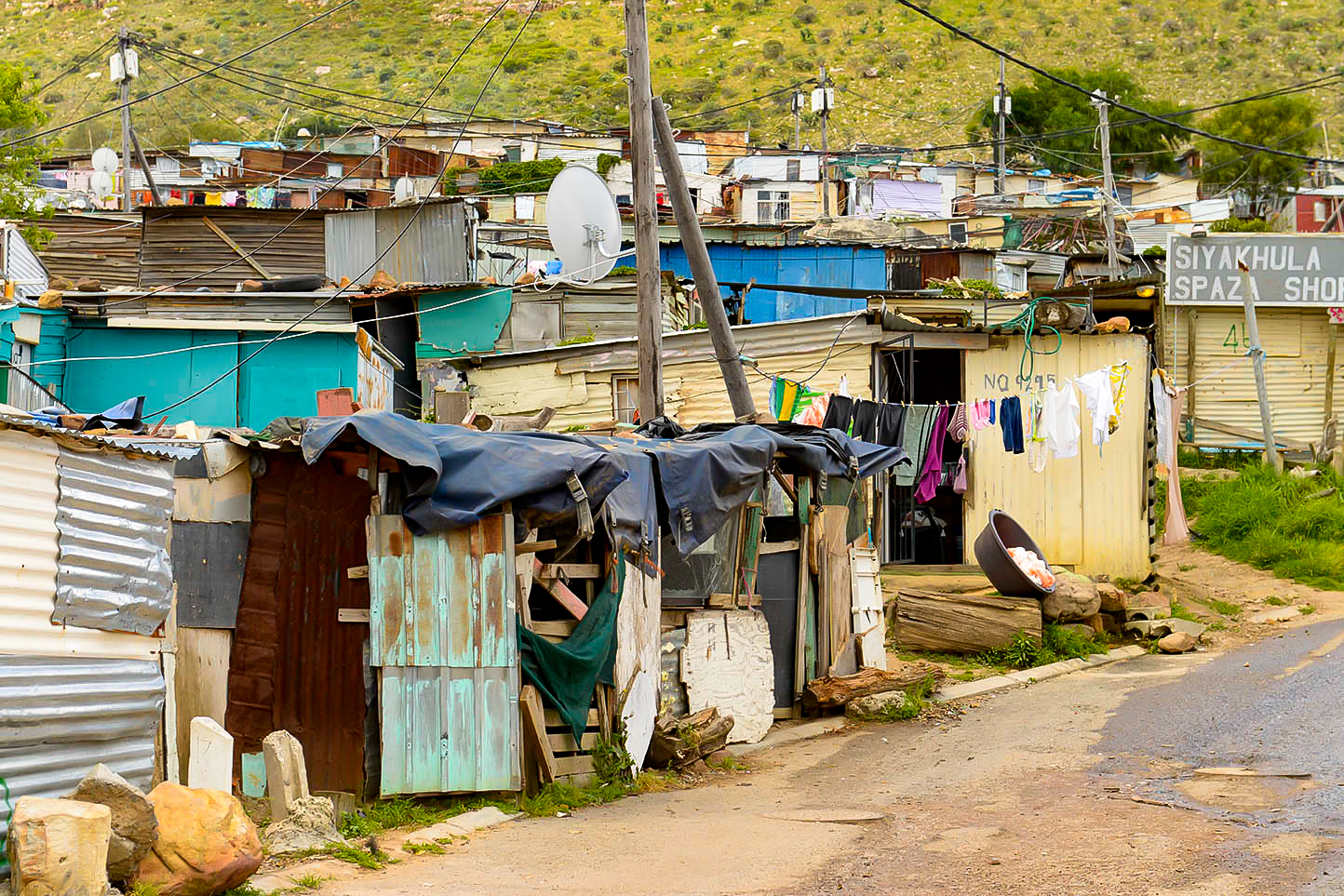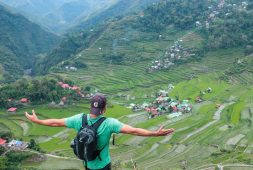
I have had the privilege to travel around the world over the past two years nonstop visiting over 50 countries and all seven continents. I wrote this piece while I was road-tripping through South Africa December 2019. I ended up driving over 3,200 kilometers, which is nearly 2,000 miles and is like driving from the tip of northern Michigan down to the southern tip of Texas. I had no idea how large the country of South Africa was.
When I stopped at various restaurants, I could hear Christmas music playing in the background and it didn’t seem quite real that the holidays are upon us since I was in Africa. However, the Christmas music began to trigger many thoughts that have been weighing on my mind this holiday season. I made the decision not to be in the USA for Thanksgiving (it actually ended up being an awesome day in Turkey – more about that in a later blog), and I considered avoiding the USA for Christmas. I realize avoiding is not the best coping mechanism for the death of a loved one, however it certainly is a quick fix.
I landed back in the USA this past Thursday since it is important for me to spend this long-loved holiday with my sister, niece, nephew and extended family and friends. Plus, after three months of traveling, it will be nice to sleep in the same bed for at least several days in a row.
The sounds of Christmas music in South Africa helped me begin to think of how thankful I am for everything that I have in my life. Sure, 2019 has been one of the most challenging for me in my life, however this tough life lesson is one that reinforces just how precious each moment is in our lives. And how we have very little control of when our last moment will be. Losing a loved one, among other life situations, helps prioritize what is most important in life. It helps me think about how lucky I am – how lucky we all are to have the lives that we have. As I think back to my travels over the past three months, I wanted to share three stories that impacted me deeply.
Your Bathroom is an Outhouse
While I traversed the vast country of South Africa, I saw many things that made me appreciate what I have. I thought back to my upbringing and everything that my parents provided me. I thought back to my early career and the lifestyle I led in New York City. And also thought about the many times I have heard others around me complain about what they don’t have instead of appreciating what they do have. Because, it turns out that we are all so rich in many ways.
It’s interesting to compare perspective. While many people in South Africa now above the poverty line, I passed countless villages comprised of small, 10 foot by 10 foot structures made out of reused paneling from other structures pieced together into what a family of four calls “home”. A small tube sticks out the top releasing heat or cooking fumes to the outside from the fire that was built inside. The area around the home is all dirt, no grass or trees. From the road I can see a large number spray painted on the front to signify the house number. Home after home positioned in rows with many homes painted in bright colors while others are just left painted as the building materials used. Children can be seen in the streets playing soccer or gathering with other children.
This is their home. This is their community. This is their life. And when they need to go to the grocery store or into town since usually it is a good distance away from these shanty communities, those that can afford a local bus will catch one passing by the main road just outside the village. For others, they stand alongside the road with their hand up waiting for a passerby to pick them up.
It rained for many days nonstop while I was in South Africa. While I focused on the road in front of me with the pouring rain as I am driving, I saw countless people standing alongside the road hailing any type of transportation to pick them up. And if they do get a ride, they must repeat this same process to get back home for the night. It made me think how fortunate I am to be able to afford a rental car and travel the world like I do.
Carrying Everything you Own by Hand
At the end of November, I took a bus from Fethiye, Turkey, to the city of Antalya, along the southern part of Turkey along the Mediterranean Sea. I arrived at the large bus station with my bags and sat down on a bench waiting for someone to pick me up. As I was waiting, I noticed a Muslim family with three older women and two younger women dressed in a traditional hijab along with three men in their twenties had stepped off of a local bus. The family working together proceeded to unload about twenty cardboard boxes from the bus that were in various conditions bound by layers of packing tape. The family, even the older women in their 70s or 80s, all helped move the boxes to another area of the waiting area across the main platform.
I began thinking to myself, these people are Syrian fleeing the border from the current conflict. They are refugees. They have packed everything they could take with them and are relocating someplace safer in the world. It triggered many thoughts of empathy and compassion. There is no way any of us know what this is like. Here these people are, having to runaway from their homes and go someplace for safety. Most of us can’t even begin to understand how this would feel. To pack what you can carry and transport into cardboard boxes and begin a journey to a place unknown.
I was getting ready to board a flight to Istanbul and had been carrying a reusable Target shopping bag with me full of ingredients I had been using over the past month and a half staying in various hostels. Olive oil, Nutella, apples, muesli, paper towels, and bread. I wouldn’t be able to take this with me on the airplane so I thought, “maybe this family could use some of the food so I don’t have to throw it away?”
I picked up my Target bag and walked over to the younger family members thinking maybe they would speak English. None of them spoke English so I motioned to the bag trying to encourage them to take the bag with all of its contents. They were a bit confused and shook their heads since they didn’t know what I was suggesting. I began to walk over to a trash can nearby and acted like I was going to throw the bag away. They finally understood, motioned for me to come back and looked inside the bag. They smiled knowing that I was trying to help them and they took the bag. They gave it to the older woman and she was very grateful. If anything, the bag is nice for them to carry items instead of using the many plastic bags they carried with them full of their clothes.
Fear in his Eyes
In the middle of November, I traveled south through the Balkan countries. I arrived in Thessaloniki in the northern part of Greece and took a train departing at midnight five hours to Athens. I had booked a more comfortable, six-person cabin in the attempt I could lean the seat back and sleep. When I booked the train online the night before, I could see no other seats had been booked and the overall train car looked empty. However when I arrived at the platform, hundreds of Indian men flooded the area to board the train, but didn’t think much of it. I got situated in my empty cabin with the glass door closed and I could see many Indian guys walking by trying to find their seats. The train was departing in ten minutes.
The whistle blew and the train shifted forward beginning its journey through the night. Several minutes after the train left the station, the cabin door opened and an Indian guy poked his head in. He handed me his ticket as a motion for me to look to see if this was his correct seat location. And sure enough, he was in my cabin. I looked up with a tired smile and nodded at him. The door pulled all the way open and five young Indian guys walked in to the tight space lit by the light filtering in from outside and found their assigned seats.
The musty smell of the train cabin quickly became overpowered with the unpleasant smell of body odor. None of the men in their twenties carried any type of bag or luggage with them. The seating arrangement was three seats across facing three seats directly across a small aisleway. The men didn’t say anything to each other but I could tell they all knew each other.
The man across from me was wearing a hunter green sweater over a tan button down shirt. His dark jeans were faded and had collected dirt like he had been wearing them for a while. His beard covered his face as he hadn’t shaved in a while. But what was most noticeable was the fear in his eyes as he sat there. It was almost as if he didn’t know what was going to happen next.
I wanted to make sure the group felt comforted since they all looked scared. The man across from me was the only person that spoke a little English. I glanced a smile at him and asked where they were all from, thinking all of the Indian guys on the train all came from the same place. He told me that they were from Kashmir, a region in northern India that borders Pakistan and is currently being disputed between the two countries. Many refugees have fled this region over the past year because of the instability and concerns for safety.
The man said they had been traveling for two months by land to this point so I asked if they had any bags or luggage and he simply replied “no”. The only things they had with them were each other, the clothing on their backs and what was in their pockets. They had no cell phone and only a small amount of cash. They were refugees traveling to Athens in the dark of the night with hopes to find a better life for themselves in a more populated European city.
Our conversation was brief, but I could only image what their eyes have seen over the past two months. They had left Kashmir, traveled across Pakistan on land into Afghanistan, Iran, Turkey and now across Greece. I wondered if they even had any type of passport or if they just crossed borders illegally.
Two months of traveling by foot had gotten them to this point, in the same train car as me. And here we are, the same. We are human beings. We want the same things: safety, shelter, food, love. And for some people in the world, people don’t choose the environment they are raised in. They have no choice but to leave and find a safer place where they can live.
It is hard for most of us to even begin to imagine what it must be like to be a refugee or try to seek safety in a different country illegally. If you are unable to put yourselves in the shoes of these people, it would be difficult to have empathy for these human beings. Many of these people have no choice. I was directly in front of them. I could see the fear and anxiety in their eyes. What if this was me? What if this was you? How would you want others to treat you? Think about how they must feel every day, not knowing where their next meal will come from or where they will sleep next.
How Lucky we Are
I share these brief stories – because hundreds of thousands of stories exist like these – to help us understand how fortunate we are to have what we have. To have food to eat everyday. And even if the food isn’t amazing or doesn’t taste good, we still have food (much of which we waste, but that is a different story – I have met people around the world who would be so happy to eat your leftover food that you throw in the trash). You have transportation. Sure, it may be a bus or a train, but we still have transportation. You don’t need to stand in the rain for hours watching car after car go by until someone picks you up, only to repeat the same thing on the way back home.
You have a roof over your head with running water and heat from a furnace. You don’t have to leave your home to go to an outhouse with a piece of wood as the door that won’t stay closed when you need a bit of privacy. You have a bedroom with a mattress – a comfortable cushion of some sort to sleep on at night. You have running water to wash your clothes and then dry your clothes in a machine. Most people in South Africa hang the clothes that they just hand washed out along the side of their home to dry. If it rains for five days, their clothes won’t dry.
So this holiday season, let’s all be thankful for what we have. In the United States, even our poor neighbors live in luxury compared to others around the world. We have it so great in the United States and in first world countries. Think twice about the next time you complain that you got wet because it rained and your umbrella didn’t cover every part of you. Think twice when you eat something that doesn’t taste good to you. Think twice when you sleep on a mattress or couch that isn’t the most comfortable. Because the hard part is that we will never fully understand the hardships that many people around the world go through every day (that you may have to go through for a day or two out of the year).
As I travel around this beautiful planet, I am constantly reminded of how fortunate and lucky I am. How privileged I am to have the opportunity to be able to see the world. I am humbled by the people I meet. I learn each and every day to become more tolerant and more passionate. And to appreciate and be grateful for what I have instead of focusing on what I don’t have. It is my hope that this writing will also be a reminder for you during this holiday season to be thankful for everything you have.


